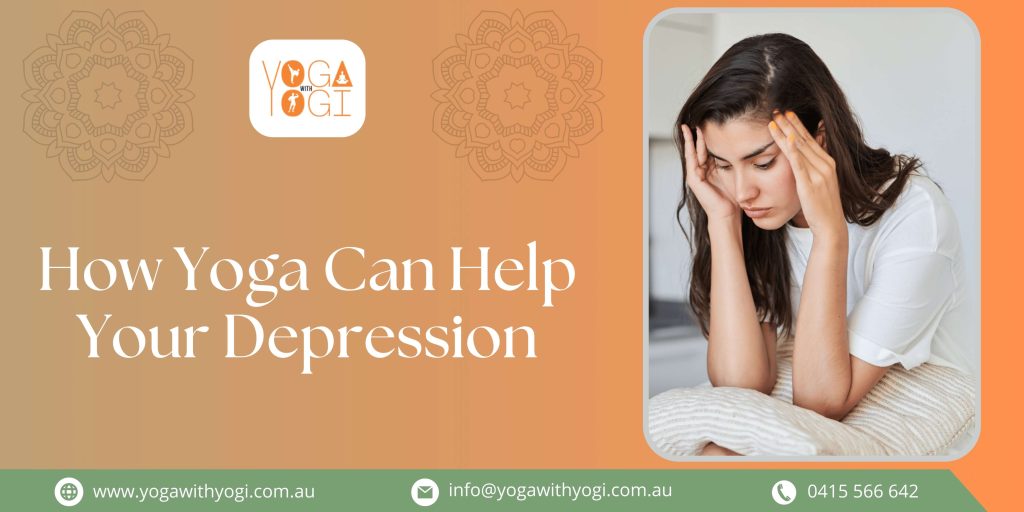There is mounting evidence that yoga can help reduce depression, despite the fact that you might not think that stretching, breathing, and concentrating on your posture can help your psychological wellbeing. Psychotherapy and medicine are frequently combined in traditional treatments for depression. However, not everyone reacts favourably to these evidence-based therapies. Only one-third of people who try antidepressants for the first time experience alleviation. During and even post the pandemic, the popularity for online private yoga classes can see a huge demand and continues to remain. Let’s find out what the experts of online yoga Australia has to say about the
The rising demand for yoga to cure mental illness
Interest in mind-body techniques that can enhance psychological well-being has risen in recent years. Over the past ten years, popularity of several activities, including yoga, has dramatically increased. According to one study, the proportion of Americans who practised yoga rose from 5.8% in 2002 to 10.1% in 2012. Numerous studies have shown that yoga can lessen the signs and symptoms of depression. Yoga is actually just as helpful in easing the symptoms of depression as pharmaceuticals and exercise, according to several research.
Researchers discovered that yoga both short-term symptom relief and long-term symptom decrease.Additionally, it lessens the severity of the symptoms and raises the likelihood that the illness will get better after therapy.
Research on Yoga and Depression
According to a 2019 study in the Journal of Psychiatric Practise, yoga can be an effective supplemental therapy for people who are suffering from clinical depression or severe depressive disorder. Participants’ sleep quality considerably improved after starting a yoga practise after just one month. Physical tiredness, as well as the signs of worry and sadness, decreased while tranquilly and optimism increased. It’s important to remember that the study was tiny, with just 30 individuals. And the scientists were attempting to figure out the ideal “dose” of yoga.
Women With Depression
Numerous studies have shown that engaging in physical activity, such as walking, might lessen depressed symptoms. But when researchers looked at two groups of depressed women, one walking and the other doing yoga based on mindfulness, they discovered that the yoga group had greater effects after 12 weeks. Although the symptoms of both groups improved, the group who practised mindfulness-based yoga thereafter reported considerably reduced levels of rumination, which can lead to depression. Keeping women’s depression in remission may depend on reducing rumination.
Individuals Recovering From Addiction
People who have attended rehab for an alcohol or drug addiction frequently experience depression and anxiety. According to studies, yoga may be a promising type of therapy. According to a 2011 study in Procedia – Social and Behavioural Sciences, yoga helped people in rehabilitation clinics dramatically lower their levels of anxiety and despair. For five weeks, participants in the study attended three 60-minute yoga sessions each week. The effects of yoga on the body, particularly those on the neurological system and different hormones, were discovered by the researchers to be helpful in easing participants’ symptoms.
How yoga helps?
yoga can be beneficial in helping to alleviate symptoms of depression. While it is not a cure for depression, doing yoga regularly can contribute to improved mental well-being. Here are a few ways in which yoga can help to fight depression:
- Physical activity and endorphin release: Engaging in physical activity, including yoga, releases endorphins in the body, which are natural mood boosters. Regular exercise has been shown to increase the production of serotonin and other neurotransmitters that is linked with happiness and well-being.
- Stress reduction: Yoga incorporates various breathing exercises and relaxation techniques that help reduce stress and anxiety. By focusing on deep, controlled breathing and mindful movement, yoga promotes relaxation and activates the body’s relaxation response, which can counteract the symptoms of depression.
- Mind-body connection: Yoga emphasizes the connection between the mind and body. Practicing yoga can help individuals become more aware of their thoughts, emotions, and bodily sensations, fostering a greater sense of self-awareness and mindfulness. This heightened awareness can provide individuals with tools to manage negative thoughts and emotions associated with depression.
- Social support: Participating in yoga classes or joining a yoga community can provide individuals with a sense of belonging and social support. Interacting with others who share similar interests and experiences can combat feelings of isolation and loneliness often associated with depression.
- Improved sleep quality: Depression often disrupts sleep patterns, and poor sleep can exacerbate depressive symptoms. Yoga has been shown to improve sleep quality and promote relaxation, enabling individuals to experience better rest, which can positively impact their overall mood and mental well-being.





